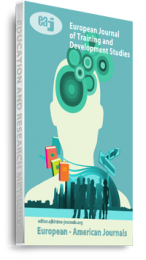This study assessed conceptual and procedural knowledge of students with special needs in Mathematics in Benue State. Four research questions and three hypotheses guided the study. Descriptive survey design was adopted for the study. A population of 36 Senior Secondary School (SS1) students in 3 Special Education Schools in Benue State during 2019/2020 academic session were used for the study. The sample size was the same as the population. Two-Tier Algebraic Diagnostic Test (TTADT) item cycle I and cycle II were adapted and validated by two experts in Mathematics Education, one specialist in the field of Test and Measurement all from Benue State University, Makurdi, and one expert in Special Education from Federal University Lafia as well as one SS1 Mathematics teacher from Government Model School, Makurdi. Trial testing was carried out on 10 SS1 students from Dunama Special School Lafia and reliability of TTADT was calculated using Pearson Product Moment Correlation Coefficient and was found to be 0.96. Mean and Standard Deviation were used to analysed data to answer the research questions, while t-test statistics was used to test the null hypotheses at 0.05 level of significance. The first finding of the study shows that the Mean scores of the SSN in Concept Knowledge and Underlining Reasoning were very low below 40% (31.25% and 21.08% respectively), while that of Procedural Knowledge is 40.69%. The second finding of the study shows that there exists a significant difference between the performance of SSN in Conceptual Knowledge and Procedural Knowledge in Algebra in favour of Procedural Knowledge (t=-5.39; P=0.00<0.05). The third finding of the study shows that there exist a significant difference between the performance of SSN in Conceptual Knowledge and Underlining Reasoning in Algebra in favour of Conceptual Knowledge (t=5.71; P=0.00<0.05). The fourth finding of the study shows that there exist a significant difference between the performance of SSN in Procedural Knowledge and Underlining Reasoning in favour of Procedural Knowledge (t=13.70; P=0.00<0.05). It is therefore recommended that, workshops, seminars and conferences should be organized to upscale, and strengthen the capacities of teachers in Special Schools, in the teaching of Conceptual and Procedural Knowledge skills in Algebra and Mathematics in general.
Keywords: Assessment, conceptual knowledge, procedural knowledge, students with special needs and mathematics.

